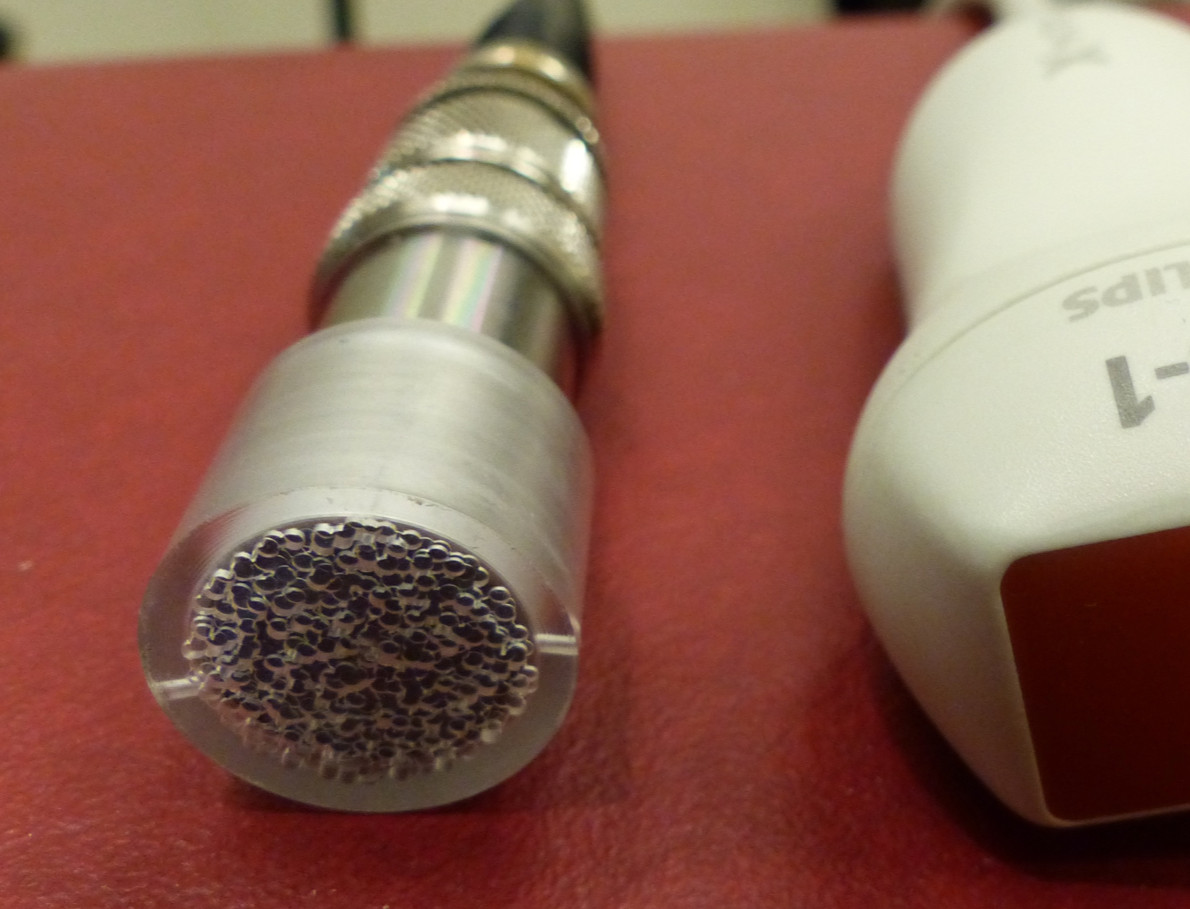Openings at ME
3 PhD positions on Compressive Ultrasound Imaging
Opening for: PhD studentStatus details
| Status: | Closed |
|---|---|
| Announced: | 15 Mar 2019 |
| Closing date: | 14 Jun 2019 |
| Duration: | 4 years |
For this multidisciplinary research project we are looking for three enthusiastic candidate PhD-students to take this exciting project from a new idea to an actual reality.
PhD 1: This PhD student will focus his/her research on laying the theoretical foundations for spatial compression of acoustic waves and will develop algorithms that can be used to reconstruct images from compressed ultrasound data. This work will be carried out in the Circuits and Systems group of the Delft University of Technology, in Delft, The Netherlands under the supervision of Prof. Geert Leus.
PhD 2: The second PhD student will work on compressive imaging devices that can be used to image the human carotid artery for diagnostic purposes. The research will specifically focus on: 1) 3D ultrasound imaging of atherosclerotic plaques using a regular probe and coding mask, 2) long-term monitoring of the pulse-wave velocity and other cardiovascular parameters inside the carotid artery. This work will be carried out under the supervision of Dr. Hans Bosch at the Department of Biomedical Engineering at the Erasmus Medical Center in Rotterdam, The Netherlands.
PhD 3: The third PhD student will apply this compressive imaging technique to visualize brain activity in small rodents. The student will work in close collaboration with neuroscientists that will use this technique to better understand the brain. The study also includes the development of new methods to image through the skull using ultrasound. This work will be carried out under the supervision of Dr. Pieter Kruizinga at the Department of Neuroscience the Erasmus Medical Center in Rotterdam, The Netherlands.
Requirements
We are looking for enthusiastic PhD students that meet the following requirements:- have a MSc in a relevant area (electrical engineering, applied physics, …);
- have experience with programming (Matlab, Python, C++, …);
- are creative, pro-active with good analytical skills;
- combine creativity with a sound academic attitude;
- have excellent communication skills in English, both in writing and speaking;
- are good team-players and able to work in a collaborative environment with the other two PhD students and supporting institutions.
When you apply for any of these positions, please annex your:
- CV
- Names and contact information of two references who are acquainted with the applicant's previous academic and/or research/professional activity.
- A detailed list of university courses with grades.
- Motivation on why you want to join the group (max. 1 page).
Contact
prof.dr.ir. Geert Leus
Professor
Signal Processing Systems Group
Department of Microelectronics
Related project
Three-dimensional Ultrasound Imaging Through Compressive Spatial Coding
Develop smart compressive coding masks to make 3D ultrasound imaging cheap and widely applicable.
Additional information
In The Netherlands, almost all PhD positions are linked to funded research projects. This has several implications:- PhD students are employed: they receive a salary rather than a grant. Most projects have a duration of 4 years.
- Positions become available once a project is funded. This can happen at any time during the year.
- It typically takes 6 to 9 months for a project proposal to receive funding. In this period, a position may be anticipated but the outcome remains insecure. Once a project is funded, the open position needs to be filled as soon as possible.
If you are interested in our research, it merits to inquire whether openings will be available. We collect resumes of prospective PhD students throughout the year, for each of our research tracks.
General requirements
We make our selection based on the following general requirements:- Formal requirements regarding prior education: you should have earned an MSc degree at a recognized institute for higher education.
- Background: you should have a background that fits the requirements of the project
- Excellence: your Grade-Point-Average should be above 8 (10). Also your MSc thesis should have received a grade above 8 (10).
- English: you should be able to communicate well in english (written and oral). Provide TOEFL/IELTS scores if available.
- Originality: your MSc thesis or later work (publications) should reflect some original ideas. Critical and independent thinking is very important.
- Team player: you should be able to work well in a team of other project members.
